42+ Sample Food Diarys
-
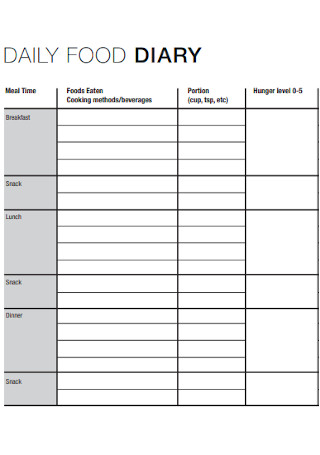
Daily Food Dairy
download now -
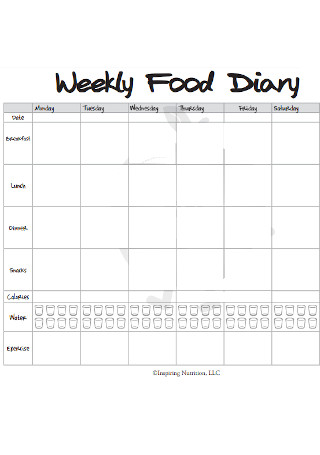
Weekly Food Dairy
download now -
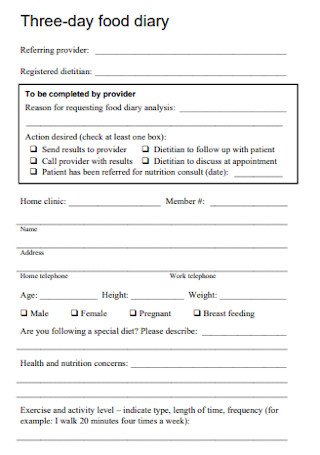
Three Day Food Dairy
download now -
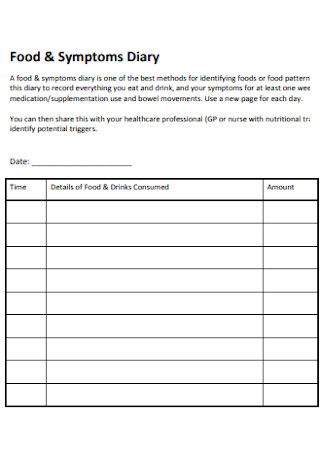
Food and Symptoms Diary
download now -
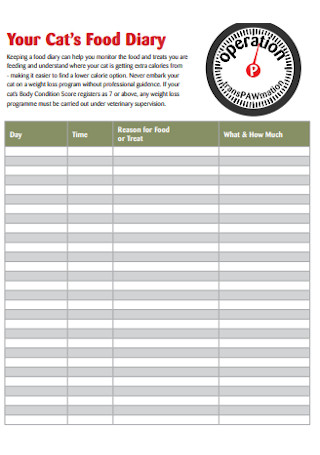
Cats Food Diary
download now -
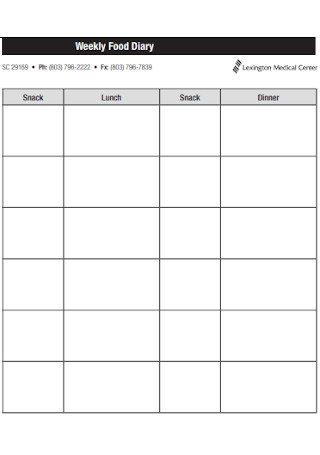
Sample Weekly Food Dairy
download now -
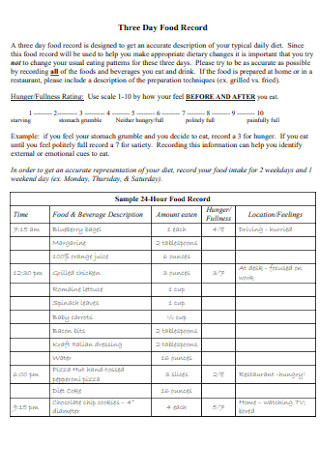
Three Day Food Record Dairy
download now -
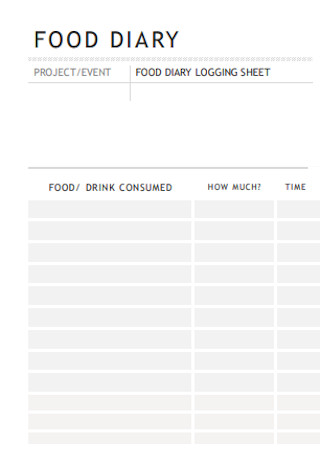
Daily Food Log Sheet
download now -
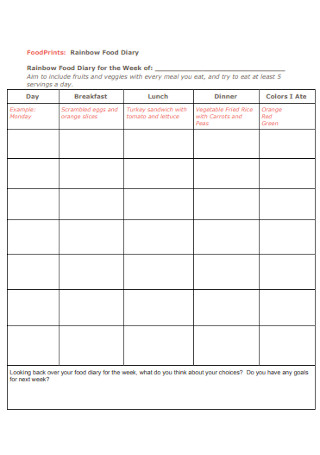
Rainbow Food Diary
download now -
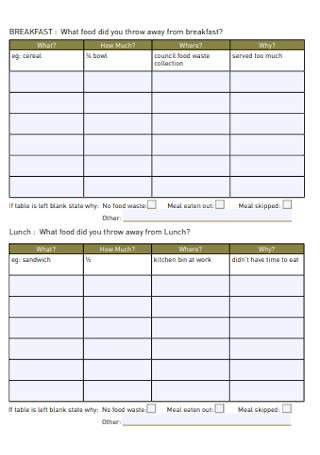
Breakfast Food Dairy
download now -
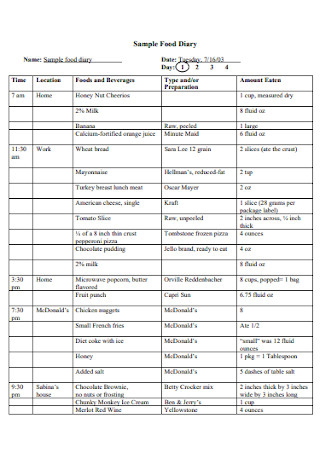
Sample Food Study Diary
download now -
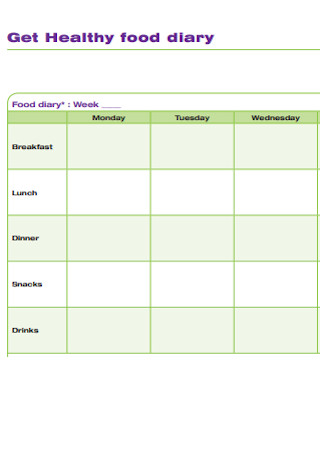
Healthy Food Dairy
download now -
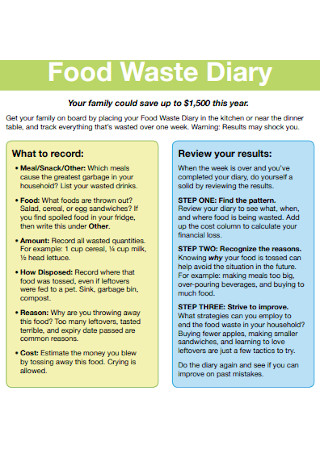
Food Waste Diary
download now -
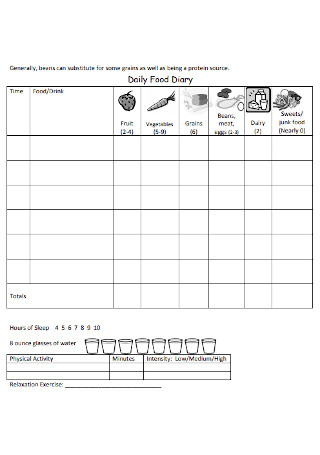
Daily Food Diary
download now -
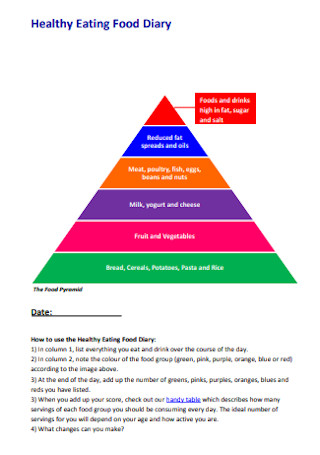
Healthy Eating Food Diary
download now -
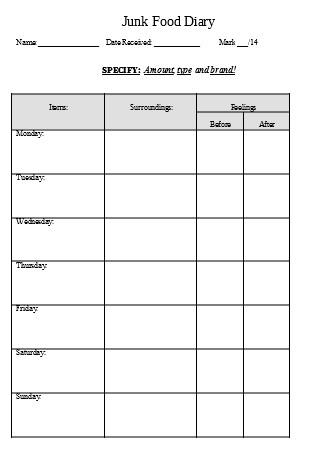
Junk Food Dairy
download now -
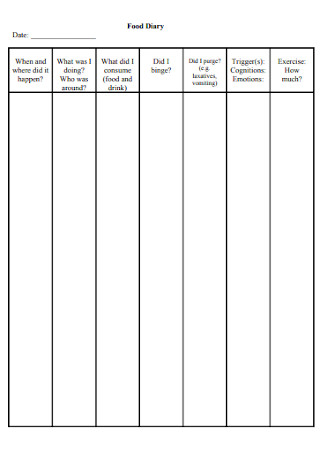
Food Dairy Format
download now -
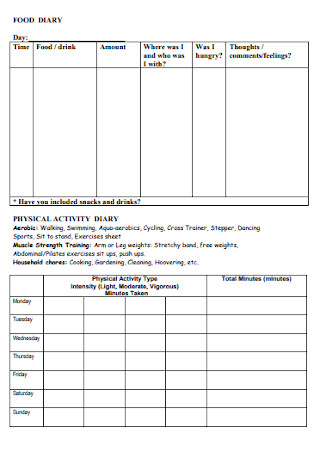
Food And Physical Activity Dairy
download now -
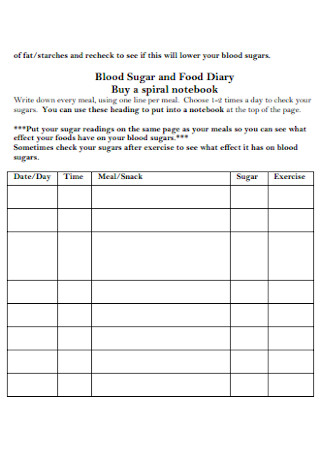
Blood Sugar and Food Dairy
download now -
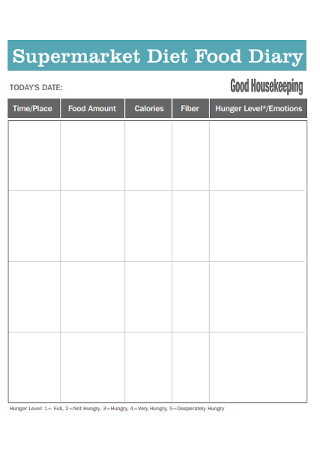
Diet Food Dairy
download now -
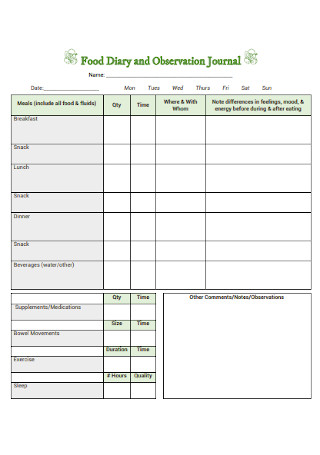
Food Observation Dairy
download now -
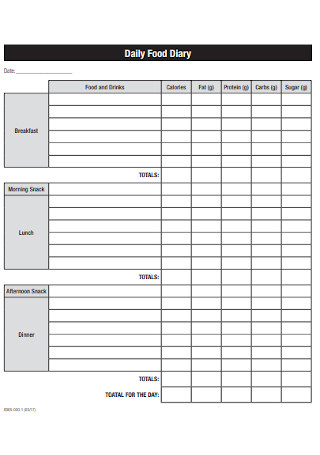
Daily Family Food Dairy
download now -
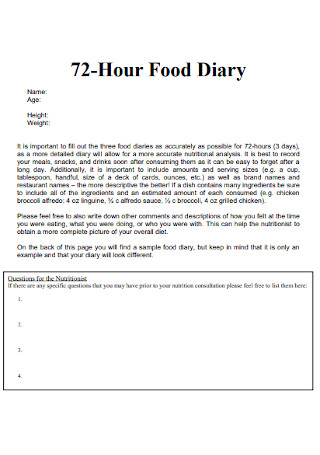
72 Hour Food Dairy
download now -
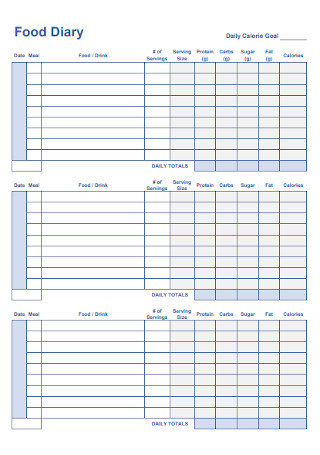
Food and Drink Dairy
download now -
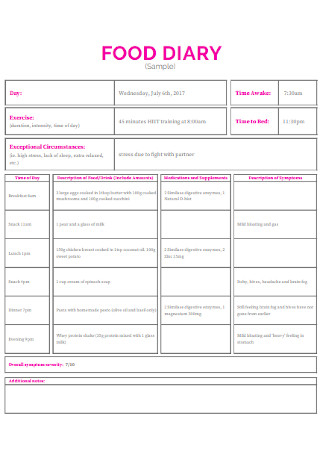
Formal Food Dairy
download now -
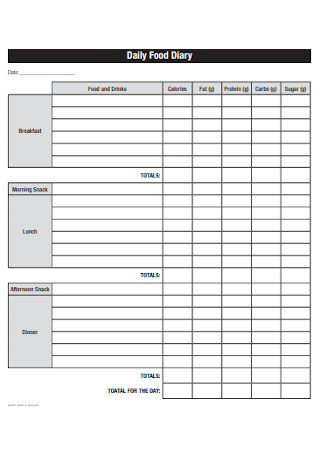
Simple Daily Food Dairy
download now -
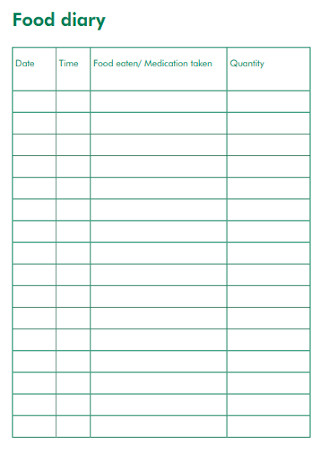
Food Symptom Diary
download now -
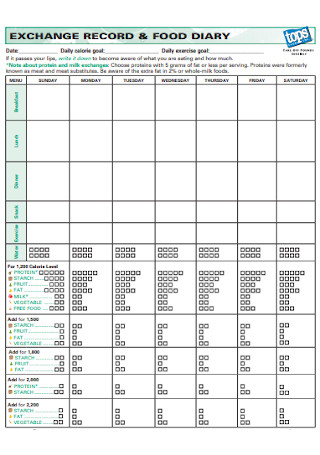
Exchange Record and Food Dairy
download now -
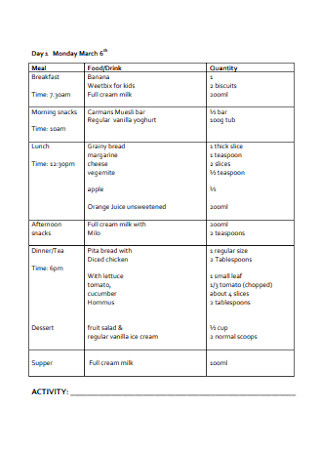
Food Dairy for Children
download now -
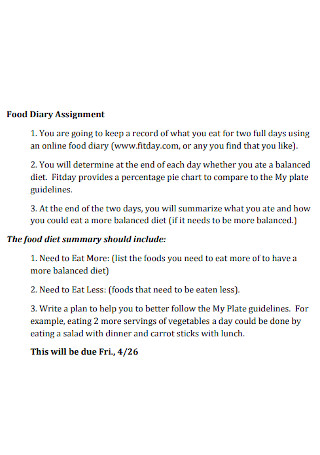
Food Diary Assignment Template
download now -
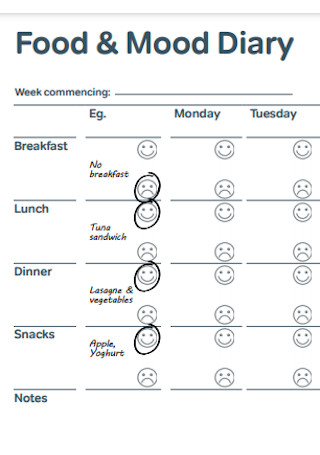
Food and Mood Dairy
download now -
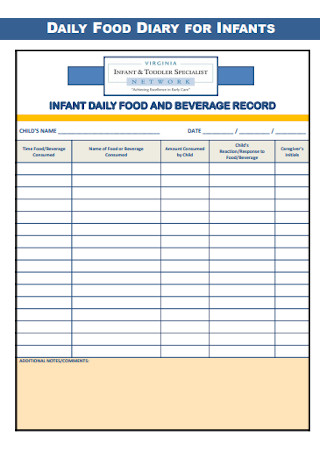
Daily Food Dairy for Infants
download now -
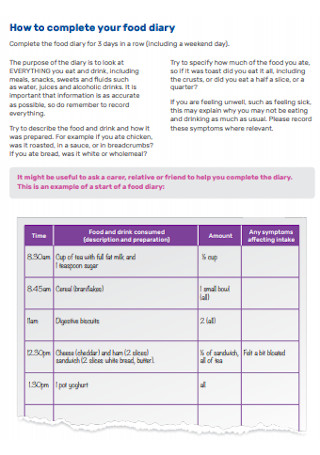
Basic Food Dairy
download now -
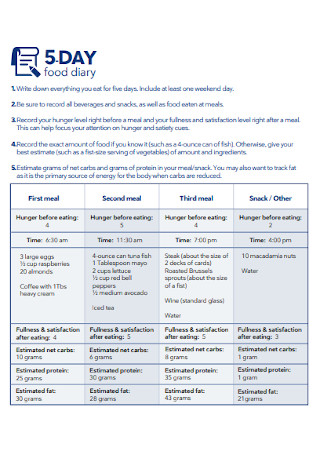
Five Day Food Dairy
download now -
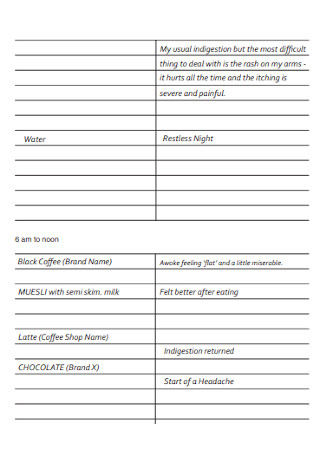
Six Week Food Dairy
download now -
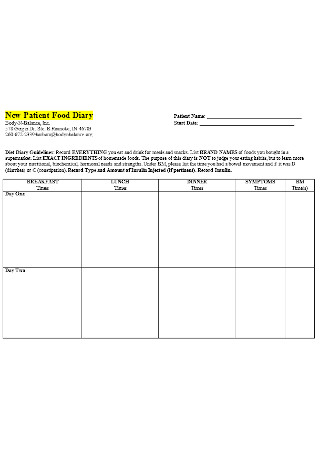
New Patient Food Diary
download now -
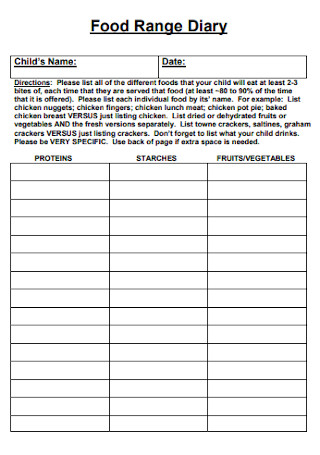
Food Range Dairy
download now -
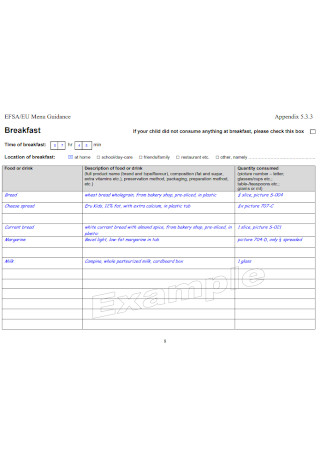
Food Dairy for Children
download now -

Healthy Eating Food Dairy
download now -
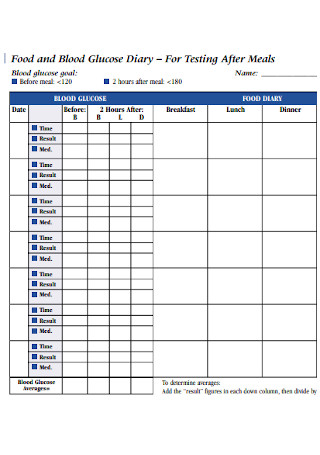
Food and Blood Glucose Diary
download now -
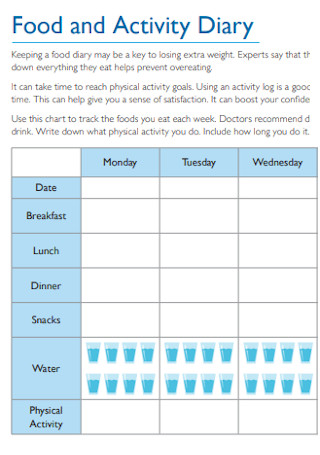
Food and Activity Diary Template
download now -
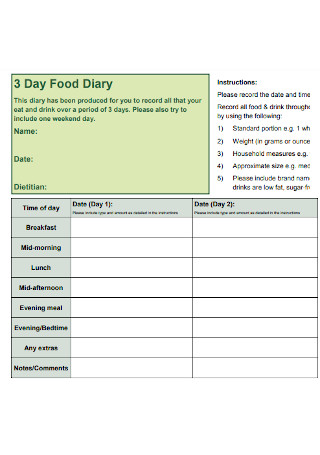
3 Day Food Diary Example
download now
Food Diary: What Is It?
A food diary is a daily record of meals you consume in a day. It helps monitor what you eat at a specific time, the amount of food you intake, and its nutritional and dietary information, like calorie count. It is similar to a tracker that records your daily eating habits. Not to be confused with meal plans, a food diary is a log for everyday food consumption.
According to Statista, 26% of young adults in America regularly track their diet and nutrition intake in 2017. The data shows that nutrition matters even to the younger generation of Americans as well.
Information Included in a Food Diary
Food diaries sound tedious at the start. However, once the habit starts, it will come naturally, and it would allow you to track the right food to consume daily.
A Guide on How to Start Your Food Diary
For people who do not have any experience in meal planning or writing a food tracker, these are some steps you can take to start writing your food diary.
Step 1: Write What You Eat as Soon as Possible
The main point of having a food diary is to record the meals we eat. It is important to write what we eat in real-time than remembering what we ate hours ago. If you don’t have the diary with you, taking a photo of what you eat is also helpful.
Step 2: Note When and Where You’re Eating
As a part of the food diary, you have to indicate this. It helps track food consumption given certain situations. It is also worth noting to include the atmosphere in which you are eating as this influences food consumption as well.
Step 3: Consider Healthier Alternatives for Food
It is applicable when ordering takeaway food, picking out groceries, or selecting a snack. Ask yourself if there is a similar food with a similar taste that would be a healthier choice. For example, if you wanted to eat a fast-food burger, a healthier alternative would be packing a chicken sandwich you made at home. Having food alternatives is a good influence in carrying a healthy lifestyle and expanding your food selection over time.
Step 4: Be Honest
A food diary is there to help you achieve your goals of eating healthy. Logging things that are not accurate will not help; it would feel like cheating and would not benefit you in any way. You’re not supposed to impress anyone but yourself, be honest.
FAQs
Benefits of a food diary
According to a study about food diaries in West Virginia University, monitoring food consumption helps in successful weight loss compared to those who do not use a diary or are inconsistent in using it.
Other benefits include:
- Accountability of food consumption
- Identifying nutritional needs
- Building healthy eating habits
A list of superfoods
Superfoods are called as such because they carry high amounts of nutrients for fewer calories. Aside from that, they contain large amounts of vitamins, minerals, and antioxidants. Antioxidants help lower the risk of diseases and conditions like cancer, stroke, heart diseases, and immune deficiency.
- Berries
- Fatty fish
- Leafy greens
- Nuts
- Spirulina
- Tea
- Turmeric
- Whole grains
- Yogurt
- Dark chocolate
Why is a healthy diet important?
The World Health Organization records that 1.9 billion adults suffer from obesity and 462 million for being underweight. A healthy diet is necessary because it allows a person good health and nutrition. It also protects us from diseases, infections, fatigue, and low performance. A healthy diet must start from childhood to prevent developmental problems and to prevent chronic diseases in adulthood.
Eating is one of the most gratifying human activities to do. It brings joy to savor our favorite food while we watch our favorite movies or television shows. It gives a sense of thrill when we try new and exotic foods while visiting other places. Food is an essential part of our lives, and this is why we must keep ourselves healthy. As Buddha once said, “To keep the body in good health is a duty; otherwise, we shall not be able to keep our mind strong and clear.” Start a healthy lifestyle now by engaging in a food diary!
